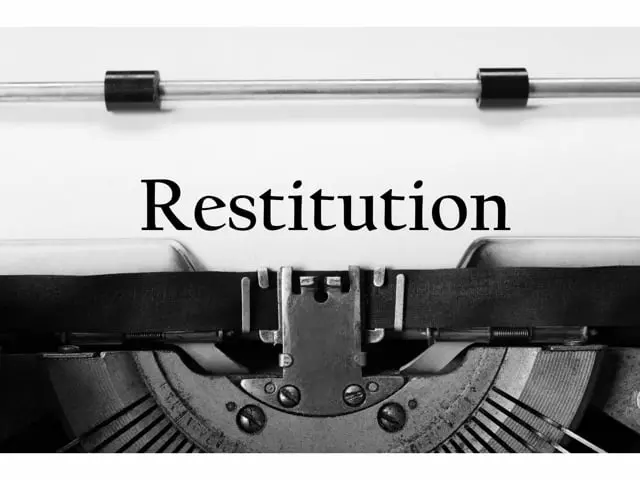When facing an out-of-state arrest, navigating the complex world of fianzas can be a daunting and confusing process. The intricacies of securing release from custody become even more challenging when dealing with different state laws, jurisdictions, and the physical distance between the arrested individual and their support network. Understanding how to navigate bail bonds across borders is crucial for anyone who finds themselves or a loved one in this difficult situation.
The bail bond process for out-of-state arrests involves several unique challenges that set it apart from local cases. One of the primary difficulties is the jurisdictional differences between states. Each state has its own set of laws and regulations governing bail bonds, which can vary significantly from one jurisdiction to another. This means that what might be a straightforward process in your home state could be vastly different in the state where the arrest occurred.
For example, some states have implemented bail reform measures that limit or eliminate cash bail for certain offenses, while others maintain traditional cash bail systems. Additionally, the requirements for bail bondsmen, the allowable fees, and the procedures for posting bail can all differ from state to state. This variability makes it essential for individuals dealing with out-of-state arrests to quickly familiarize themselves with the specific laws and practices of the jurisdiction where the arrest took place.
Another significant challenge in out-of-state arrest situations is the physical distance involved. When someone is arrested far from home, it can be difficult for family members or friends to provide immediate assistance or gather the necessary resources to secure their release. This distance can also complicate the process of finding and working with a reputable bail bondsman in an unfamiliar area.
To address these challenges, many bail bond companies offer services specifically designed for out-of-state arrests. These services often involve collaboration between bail bond agents in different states to facilitate the release process. This type of arrangement is commonly referred to as a transfer bond.
A transfer bond allows an individual to work with a agente de fianzas in their home state to secure the release of someone arrested in another state. The local bail bondsman coordinates with a counterpart in the state where the arrest occurred to post the bail and handle the necessary paperwork. This approach can be particularly helpful for families who are unfamiliar with the legal system in the state where their loved one was arrested.
However, it’s important to note that transfer bonds often come with additional fees and complexities. The involvement of multiple bail bond agents and the need to navigate different state regulations can increase the overall cost of securing release. Additionally, the process may take longer than a standard local bail bond due to the need for coordination between agents and jurisdictions.
One crucial aspect of dealing with out-of-state arrests is understanding the concept of extradition. When an individual is arrested in one state for charges pending in another, they may be subject to extradition proceedings. Extradition is the legal process by which a person accused of a crime in one jurisdiction is transferred to the custody of law enforcement in the jurisdiction where the alleged offense occurred.
The extradition process can significantly complicate bail matters in out-of-state arrest situations. In some cases, the arrested individual may need to post bail in both the state where they were arrested and the state seeking their extradition. This can result in higher overall costs and more complex legal proceedings.
It’s also worth noting that some states have agreements or compacts that streamline the extradition process for certain types of offenses. For example, the Interstate Compact for Adult Offender Supervision (ICAOS) provides a framework for transferring supervision of probationers and parolees between states. Understanding these interstate agreements can be crucial when navigating the bail process for out-of-state arrests.
When dealing with an out-of-state arrest, one of the first steps is to gather as much information as possible about the arrest and the charges. This includes details such as the exact location of the arrest, the charges filed, the bail amount set (if any), and any scheduled court appearances. This information is essential for working with a bail bondsman and understanding the next steps in the legal process.
It’s also important to consider the potential long-term implications of an out-of-state arrest. Even after securing release through a fianza, the arrested individual may need to return to the state where the arrest occurred for future court appearances. This can involve significant travel expenses and time away from work or family obligations. In some cases, it may be possible to arrange for appearances via video conference or to transfer the case to the individual’s home state, but these options depend on the specific circumstances of the case and the laws of the states involved.
Another factor to consider in out-of-state arrest situations is the potential impact on immigration status. For non-citizens, an arrest in any state can have serious consequences for their ability to remain in the United States. The complexities of immigration law add another layer of difficulty to navigating the bail process across state lines. In these cases, it’s crucial to work with both a abogado penalista and an immigration lawyer to understand the full implications of the arrest and to develop a strategy for addressing both the criminal charges and any potential immigration consequences.
When seeking a bail bondsman for an out-of-state arrest, it’s important to choose a reputable and experienced professional. Look for a bail bond agent who has experience handling out-of-state cases and who can clearly explain the process, fees, and any potential complications. It’s also wise to verify that the bondsman is properly licensed in both your home state and the state where the arrest occurred.
Many bail bond companies now offer online services that can streamline the process of securing release for out-of-state arrests. These services may include electronic document signing, video consultations, and secure online payment options. While these technological advancements can make the process more convenient, it’s still important to thoroughly understand all terms and conditions before entering into any bail bond agreement.
One aspect of out-of-state arrests that often catches people off guard is the potential for higher bail amounts. Courts may set higher bail for out-of-state defendants, viewing them as a greater flight risk due to their lack of local ties. This can make it more challenging to secure release and may require a larger financial commitment from the defendant or their family.
In some cases, courts may impose additional conditions on out-of-state defendants as part of their release. These conditions could include travel restrictions, regular check-ins with local law enforcement, or even electronic monitoring. Understanding and complying with these conditions is crucial to avoid further legal complications.
For individuals with prior criminal records, out-of-state arrests can be particularly complex. Different states may have varying laws regarding how prior convictions are considered in bail determinations and sentencing. This can lead to unexpected consequences and potentially higher bail amounts or more stringent release conditions.
It’s also important to consider the potential impact of an out-of-state arrest on professional licenses or certifications. Many professions require individuals to report arrests or convictions, even if they occur in another state. Failing to properly report an out-of-state arrest could lead to professional disciplinary action in addition to the criminal legal consequences.
In some cases, individuals arrested out of state may be eligible for alternative release options beyond traditional cash bail or surety bonds. These could include release on own recognizance (ROR), where the defendant is released based on their promise to appear in court, or supervised release programs. However, the availability of these options may be more limited for out-of-state defendants due to concerns about flight risk.
When dealing with an out-of-state arrest, it’s crucial to understand the specific timeline and deadlines involved in the legal process. Different states have varying requirements for when charges must be filed, when bail hearings must be held, and when defendants must appear in court. Missing these deadlines can have serious consequences, including the issuance of additional warrants or the forfeiture of bail.
Another important consideration in out-of-state arrest situations is the potential for asset forfeiture. Some states have laws that allow for the seizure of assets believed to be connected to criminal activity. For out-of-state defendants, this could potentially include vehicles used to travel to the state or cash carried at the time of arrest. Understanding these laws and working with a knowledgeable attorney can help protect against unnecessary asset loss.
The COVID-19 pandemic has introduced new complications to the bail process for out-of-state arrests. Many jurisdictions have implemented new procedures to reduce jail populations and minimize in-person court appearances. This could potentially work in favor of out-of-state defendants by increasing the likelihood of release on own recognizance or the use of virtual court appearances. However, it’s important to stay informed about the current policies in the relevant jurisdiction, as these may continue to evolve.
For individuals arrested out of state on drug-related charges, it’s important to be aware of the potential for mandatory minimum sentences or enhanced penalties for trafficking across state lines. These factors can significantly impact bail determinations and the overall legal strategy. In some cases, it may be possible to negotiate for entry into drug treatment programs as an alternative to traditional prosecution, but the availability of such options may vary depending on the jurisdiction and the specific circumstances of the case.
When dealing with out-of-state arrests involving multiple defendants, the bail process can become even more complex. Each defendant may have different bail amounts set based on their individual circumstances, criminal history, and perceived flight risk. Coordinating bail for multiple individuals across state lines requires careful planning and communication with bail bondsmen and attorneys.
It’s also worth noting that some states have implemented risk assessment tools as part of their pretrial release decision-making process. These tools use algorithms to evaluate factors such as criminal history, community ties, and the nature of the current charges to make recommendations about release conditions. For out-of-state defendants, these tools may not fully capture their community ties or support systems in their home state, potentially leading to less favorable assessments.
In cases where an individual is arrested out of state on a warrant from their home state, the process can be particularly complex. The arrested person may need to go through extradition proceedings before they can even begin to address the underlying charges. In some cases, it may be possible to negotiate a voluntary return to the home state, which can expedite the process and potentially lead to more favorable bail conditions.
For individuals arrested out of state while on probation or parole, the consequences can be severe. In addition to facing new charges, they may be subject to probation or parole revocation proceedings in their home state. This can complicate the bail process and may require coordination between multiple jurisdictions and supervising agencies.
It’s also important to consider the potential impact of an out-of-state arrest on child custody arrangements. For parents who share custody across state lines, an arrest could potentially be used as grounds to modify existing custody agreements. This adds another layer of complexity to the legal issues surrounding out-of-state arrests and underscores the importance of resolving such matters quickly and effectively.
In some cases, individuals arrested out of state may be eligible for diversion programs or other alternative disposition options. However, participation in these programs may require extended stays in the state where the arrest occurred or frequent travel for check-ins and court appearances. Weighing the benefits of such programs against the practical challenges of participating from out of state is an important consideration in developing a legal strategy.
For college students arrested while attending school out of state, there may be additional complications related to student visa status, financial aid eligibility, and academic standing. It’s important to consider not only the criminal legal implications of an arrest but also the potential impact on educational opportunities and future career prospects.
In cases involving arrests for white-collar crimes or financial offenses, out-of-state defendants may face additional scrutiny when it comes to bail determinations. Courts may be concerned about the defendant’s access to financial resources that could facilitate flight. In these cases, it may be necessary to provide detailed financial disclosures or agree to asset freezes as conditions of release.
For individuals arrested out of state on domestic violence charges, there may be specific laws and procedures that come into play. Many states have mandatory arrest policies for domestic violence calls, which can lead to arrests even in cases where the alleged victim does not wish to press charges. Navigating the bail process in these cases often involves addressing protective orders and no-contact provisions, which can be particularly challenging for out-of-state defendants.
It’s also worth considering the potential for civil asset forfeiture in out-of-state arrest situations. Some jurisdictions have laws that allow for the seizure of assets believed to be connected to criminal activity, even if the owner is never charged with or convicted of a crime. Out-of-state defendants may be particularly vulnerable to such seizures, as they may not have immediate access to legal resources to challenge these actions.
When dealing with out-of-state arrests involving juveniles, the process can be even more complex. Juvenile justice systems vary significantly from state to state, and the rules governing detention, bail, and transfer to adult court can differ widely. Parents or guardians may need to navigate unfamiliar legal systems and potentially arrange for their child’s return across state lines.
For individuals arrested out of state on charges related to protests or political activities, there may be additional considerations related to First Amendment rights and the potential for selective prosecution. In these cases, it may be necessary to work with civil rights organizations or specialized attorneys who have experience dealing with the intersection of criminal law and constitutional rights.
In conclusion, navigating bail bonds for out-of-state arrests requires a thorough understanding of multiple legal systems, careful coordination between various parties, and a strategic approach to addressing both immediate and long-term consequences. While the process can be challenging, being well-informed and working with experienced professionals can help ensure the best possible outcome in these complex situations. As laws and procedures continue to evolve, staying up-to-date on the latest developments in bail reform and interstate compacts is crucial for effectively managing out-of-state arrest situations.
Website citations:
- https://www.bigmikebailbonds.com/blog/arrested-out-of-state-and-needing-bail
- https://www.barrinobonds.com/post/can-you-transfer-a-bail-bond-from-one-state-to-another
- https://allnonebail.com/2021/11/out-of-state-bail-bonds-and-how-they-work/
- https://www.bailbondsnow.org/resources/what-can-a-bail-bonds-an-do-legally/
- https://www.lawinfo.com/resources/criminal-defense/what-happens-when-you-face-out-of-state-crimi.html
- https://www.rjaffelaw.com/blog/what-happens-if-you-get-an-out-of-state-warrant-for-arrest/
- https://freeatlastbb.com/blog/post-bail-for-someone-in-another-state/
- https://www.badboysbailbonds.com/2024/10/can-you-bail-someone-out-from-another-state/
- https://www.charlottebailbonds.us/arrested-in-another-state-a-complete-guide-to-transfer-bonds/
- https://www.allcitybailbonds.com/2016/12/happens-loved-one-arrested-state/
- https://www.criminaldefenselawyer.com/resources/criminal-defense/criminal-defense-case/out-of-state-criminal-charge.htm
- https://www.palmettosurety.com/transfer-bond-bail-someone-out-of-jail-in-another-state/
- https://toplawyer.law/how-california-handles-out-of-state-warrants/
- https://www.allcitybailbonds.com/2024/12/navigating-bail-for-out-of-state-arrests-what-you-need-to-know/
- https://ngbbtx.com/bail-someone-out-from-another-state/









